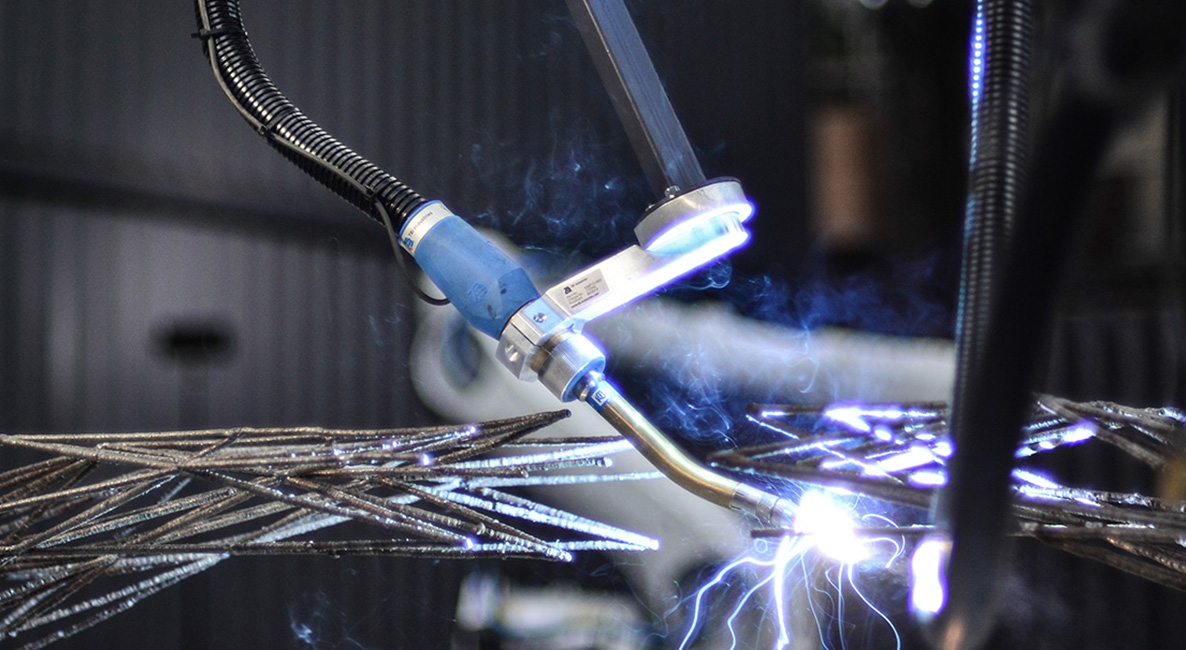Researchers at the University of Sheffield have joined the INTEGRADDE project, a €17 million European consortium developing end-to-end solutions for Directed Energy Deposition (DED) processes in metalworking industries.
The INTEGRADDE project or ‘Intelligent data-driven pipeline for the manufacturing of certified metal parts through Direct Energy Deposition’, is led by Spain’s AIMEN Centro Tecnológico and involves 26 partners from 11 countries.
Three engineering departments at the University of Sheffield are now supporting this project which includes George Panoutsos, Professor of Computational Intelligence, Matthew Gilbert, Professor of Civil Engineering, and Iain Todd, Professor of Metallurgy.
“This project brings the possibility of a digitally enabled manufacturing line a lot closer,” said Professor Todd. “The interdisciplinary nature of the work, along with the partnerships established across Europe, means that the entire AM supply chain is being considered holistically for the first time, and we will see advances happen much more quickly than ever before.”

The INTEGRADDE project
As part of the European Union’s Horizon 2020 research and innovation program, the INTEGRADDE project seeks to accelerate the adoption of industrial additive manufacturing. In doing so, the partners intend to reduce the manufacturing costs and unpredictable defects in metal 3D printed parts.
As such, research on building strategy optimization, multi-scale and multi-physics modeling, hardware-independent building process, online control, and inline quality assurance are being explored. This is expected to enable a strategy of continuous and integral optimization and control of additive manufacturing processes.
Professor Gilbert added, “Conventional manufacturing processes usually impose severe constraints on the geometry of the components that can be produced. Additive manufacturing frees up many of these constraints, potentially allowing the strong and light component forms identified via optimization to be manufactured for the first time. And with DED processes, the scale of components that can be produced via additive manufacturing is significantly increased.”

Piloting lines for industrial 3D printing
Through pilot lines with partners ArcelorMittal, GKN Aerospace, CORDA, Loiretech, and MX3D, data-driven computational frameworks will be used for extracting process-part relationships from human-interpretable artificial intelligence models. Furthermore, powder-based Laser Metal Deposition (LMD-p) will be used within these pilot lines.
It is expected that this research will increase the reliability of additive manufacturing processes by 40%, the production speed by 25% and provide a step-change in improving the quality of parts produced. The researchers from the University of Sheffield will consider the materials requirements for the pilot lines and how these can be incorporated into digital platforms. Professor of Computational Intelligence, George Panoutsos, continued:
“The scope of the work is two-fold; to use raw process data to develop mathematical models of process-part behaviors, and to use such models to further understand and optimize the manufacturing process itself.”
The consortium is also aiming to create a network to support companies evaluating the adoption of additive manufacturing technology.
Don’t forget to vote for the 2019 3D Printing Industry Awards.
Subscribe to our 3D Printing Industry newsletter and follow us Facebook and Twitter for the latest news in additive manufacturing.
Visit our 3D Printing Jobs board to find out more about opportunities in additive manufacturing.
Featured image shows a metal 3D printed structure. Image via INTEGRADDE.


